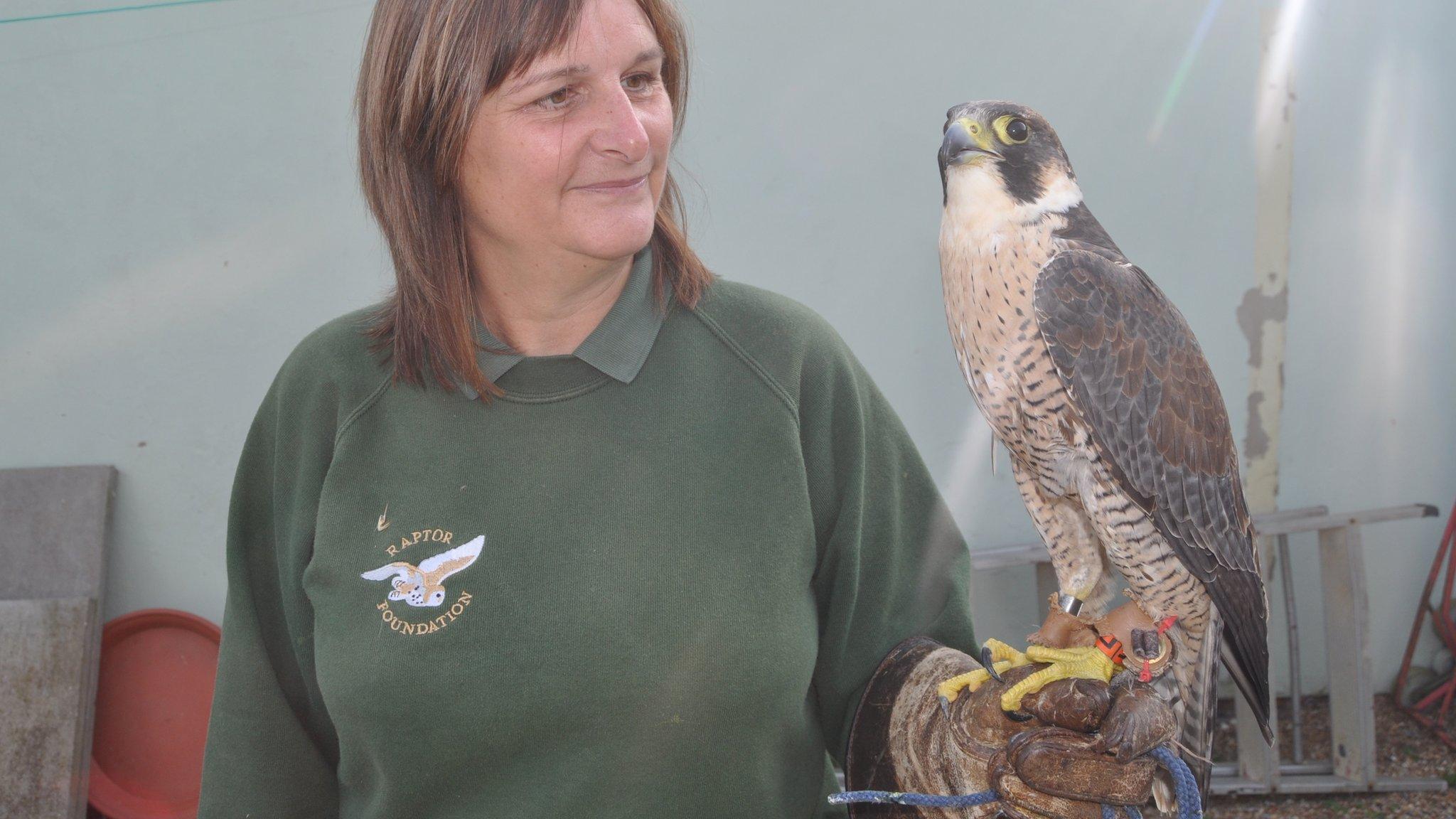St Albans: Live stream of peregrine falcon nest at cathedral launched
- Published
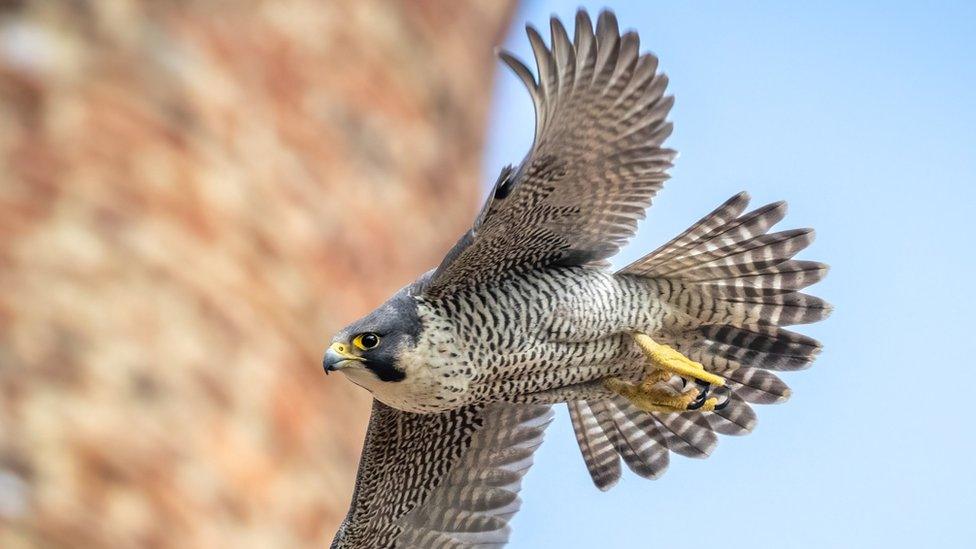
The birds have returned to St Albans Cathedral in Hertfordshire after first breeding there last year
A live stream has been launched to allow people to watch a cathedral's rare pair of peregrine falcons online.
The birds have returned to St Albans Cathedral in Hertfordshire after first breeding there last year.
The pair, named Alban and Boudica following a public vote, are one of just five falcon pairs in the county.
Heidi Carruthers, from Herts and Middlesex Wildlife Trust, said there had been "so much interest in the birds", who have already laid one egg.
Peregrine falcons mate for life and usually stay loyal to their nesting site.
In 2022, the pair set up home on the tray at St Albans Cathedral, installed as part the Wilder St Albans project, a collaboration between the trust and St Albans City and District Council.
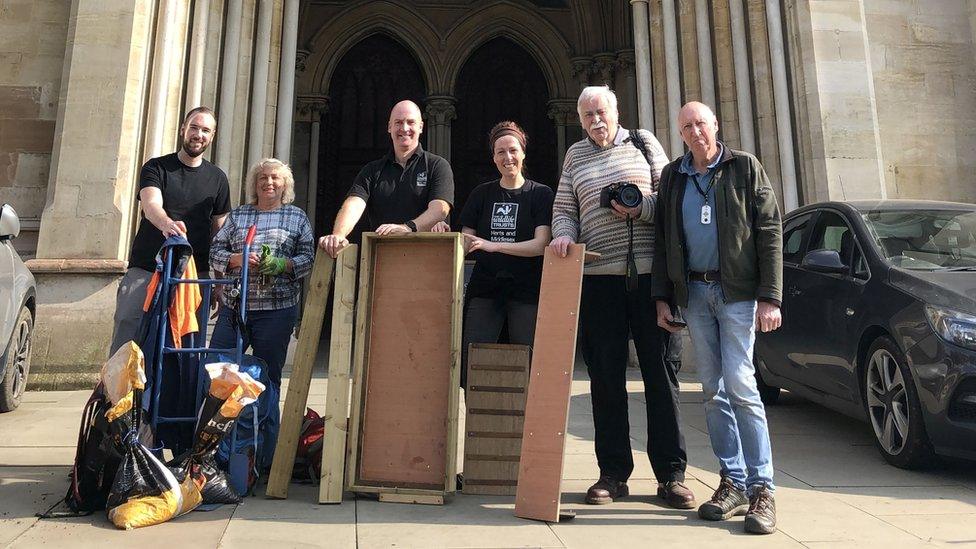
A peregrine falcon nest tray was fitted at the cathedral last year
Last May, a chick named Artemis was recorded as the first peregrine hatched in the city.
The tray is fixed high up on the cathedral and out of sight behind a parapet, but birdwatchers on the ground can see the peregrines coming and going.
But this year, birdwatchers will be able to take advantage of a newly installed webcam.
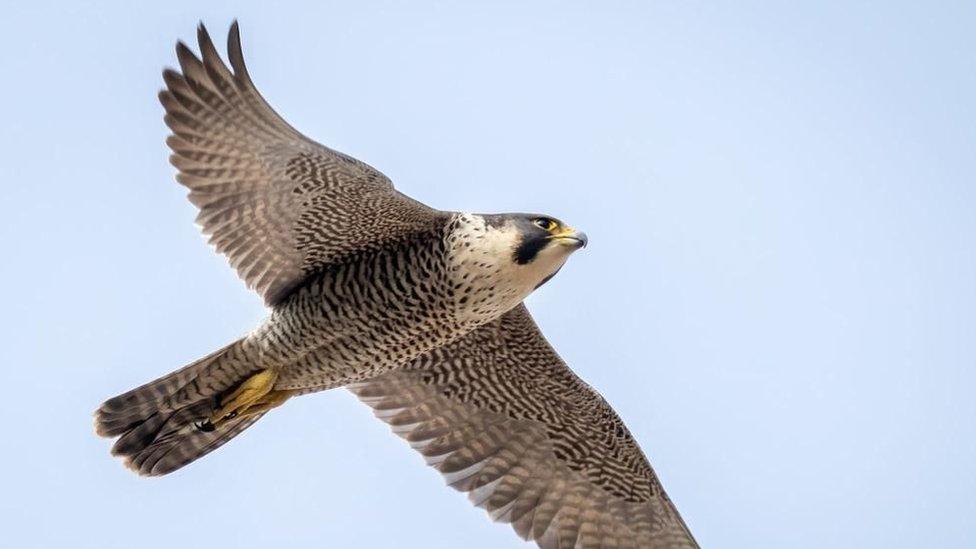
The St Albans peregrine falcons are one of five pairs to nest in Hertfordshire
Barry Trevis, who has been studying breeding peregrine falcons across Hertfordshire to help ensure the species' safety, said the new webcam was an excellent tool in helping to monitor the breeding success of the birds.
"Should they be successful, we will look to ring the chicks which can help provide information on the birds, giving us valuable insights to their survival rates and movements," he said.
The Reverend Dr Kevin Walton, cathedral canon chancellor, said: "It is a great excitement to be able to see, watch and hear these peregrine falcons making their home here."
The birds are also known to nest in Watford, Hemel Hempstead, Welwyn Garden City and Wymondley.

Peregrine falcon
A powerful bird of prey with blue/grey plumage, a white face and a contrasting black moustache
Top flying speed of 180mph (290km/h) when diving - making it the planet's fastest animal
About 1,500 breeding pairs in UK
Hen lays three to four eggs a year
UK birds remain resident all year round, with others visiting from northern Europe
Numbers of the species fell through the first-half of the 20th Century to critical levels in the 1960s, but are now protected by law

Find BBC News: East of England on Facebook, external, Instagram, external and Twitter, external. If you have a story suggestion email eastofenglandnews@bbc.co.uk, external
Related topics
- Published25 May 2022
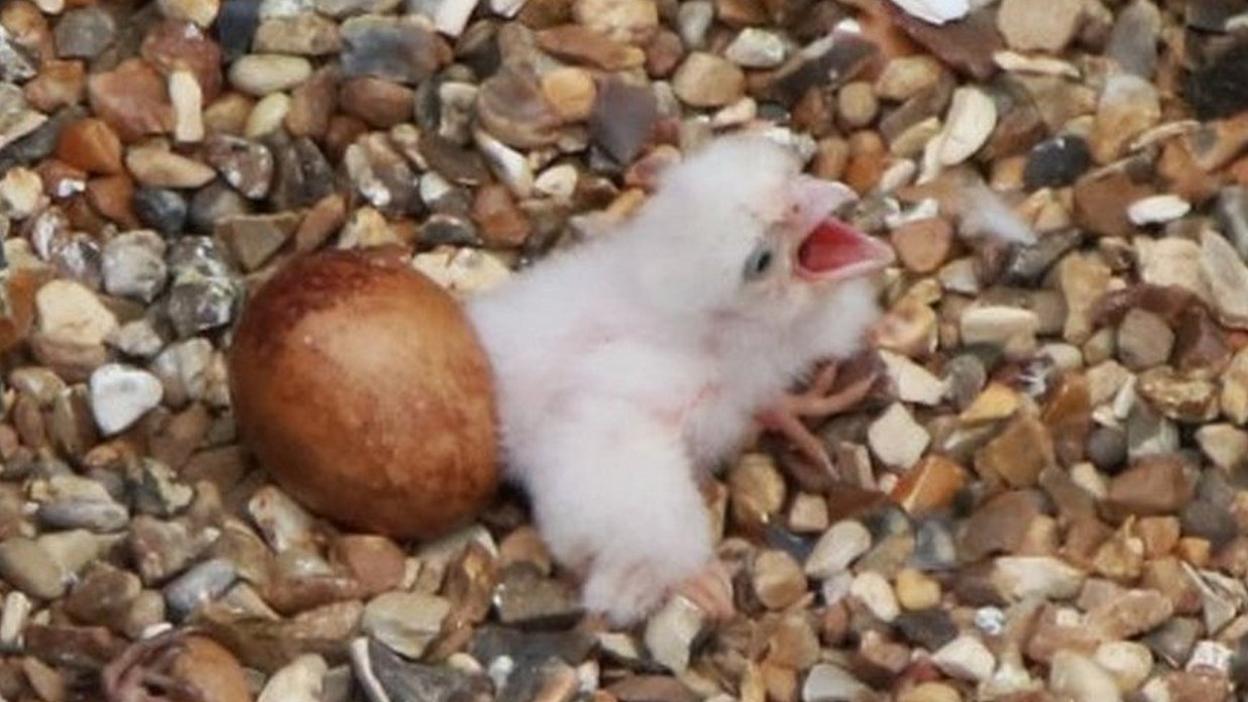
- Published3 May 2022
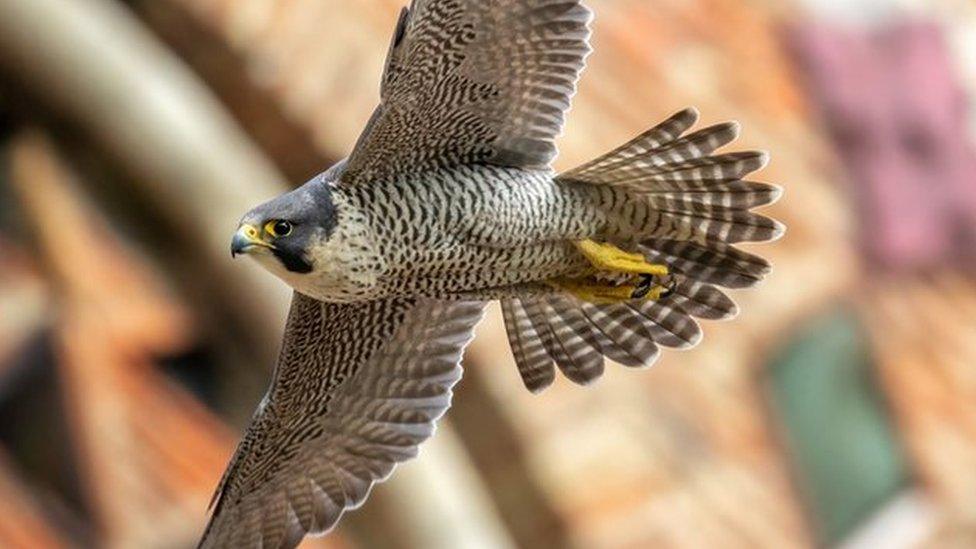
- Published5 April 2022
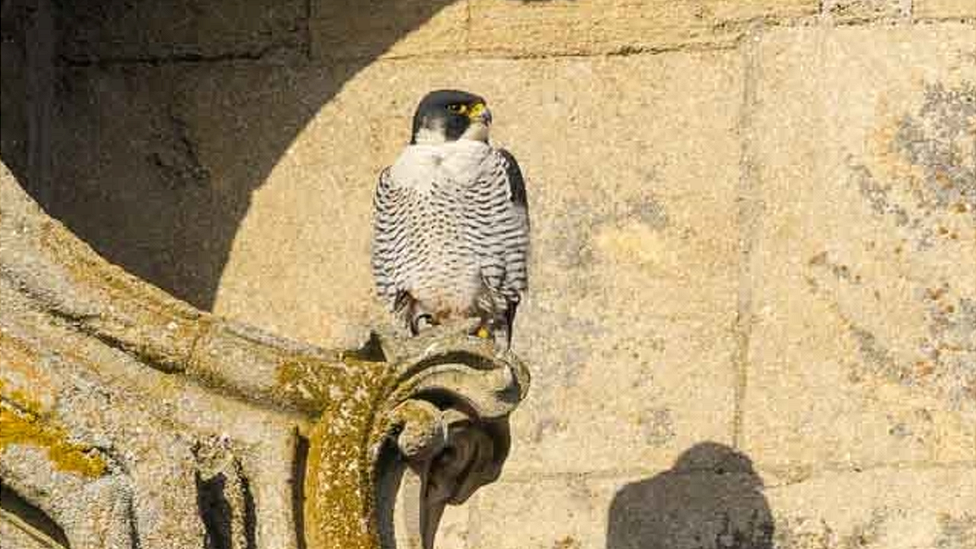
- Published27 November 2021
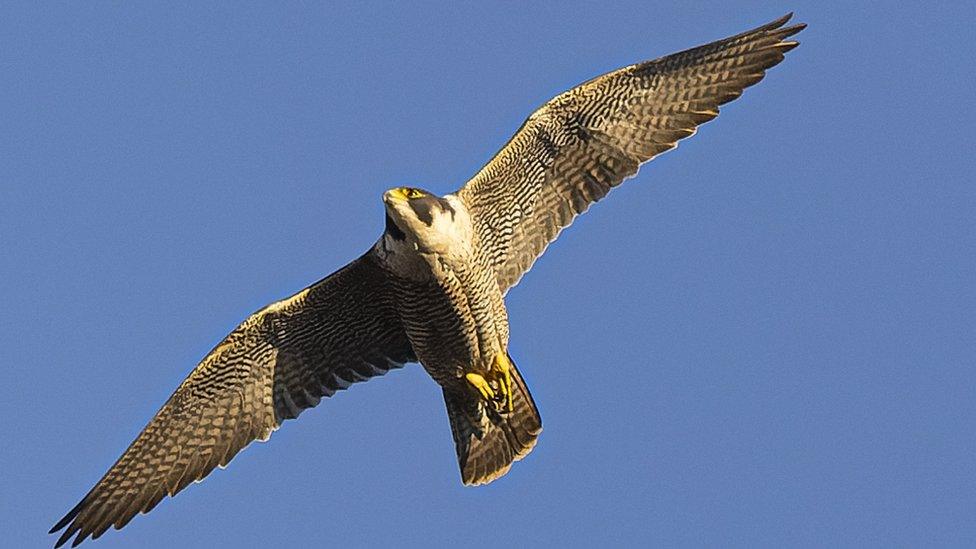
- Published4 May 2021
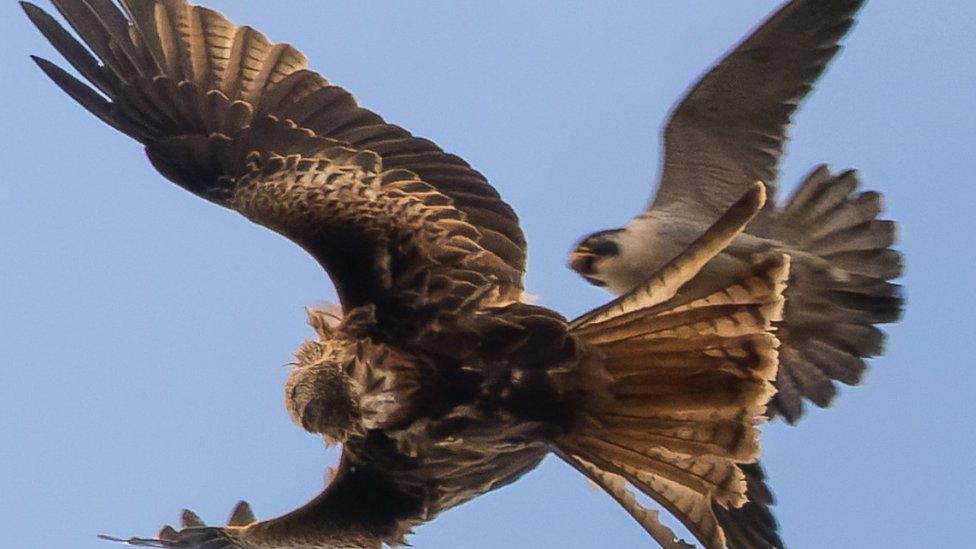
- Published20 January 2019

- Published1 November 2015
